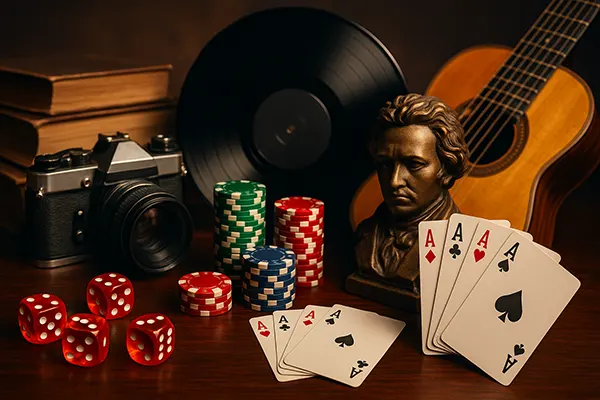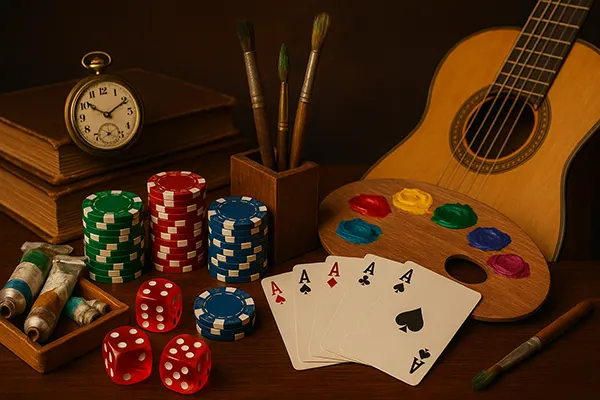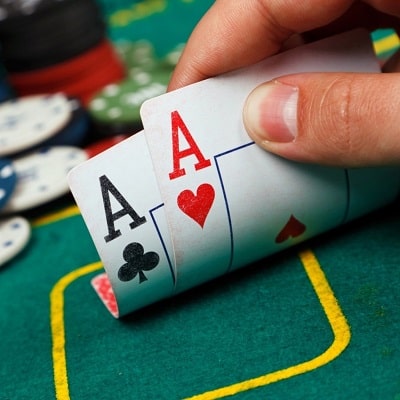Cultural Influence of Gambling: How Casinos Shape Cinema, Music and Literature

Gambling has long been more than just a form of entertainment. Over the centuries, it has left a notable mark on culture, influencing how stories are told in films, inspiring songs that resonate with audiences, and shaping narratives in world literature. By 2025, the cultural role of gambling is even more visible, as creative industries continue to reinterpret its themes of risk, luck and human ambition. Understanding this impact allows us to see how casinos have become not only economic institutions but also powerful symbols in cultural history.
Casinos in Cinema: From Noir Classics to Modern Blockbusters
Cinema has always found fertile ground in the imagery of gambling. From the smoky rooms of 1940s film noir to the bright neon lights of Las Vegas in modern blockbusters, casinos have provided settings where human emotions, ambitions and downfalls could be vividly portrayed. Directors have used the tension of a roulette spin or the suspense of a poker hand to create some of the most iconic cinematic moments.
Films like “Casino” (1995) or “Ocean’s Eleven” (2001) showcase not only the glamour of the casino environment but also the darker sides of crime, risk and addiction. More recent productions, such as “Molly’s Game” (2017), shift the focus towards personal stories, demonstrating how gambling intertwines with ambition and personal struggles. By 2025, streaming platforms continue to produce gambling-related content, reflecting the never-ending fascination with high stakes.
Casinos in cinema are not only about entertainment. They serve as metaphors for society, revealing themes of greed, morality and the thin line between success and failure. The screen continues to project gambling as both a dream and a warning, leaving audiences questioning the cost of fortune.
The Role of Character Development in Casino Films
Gambling in films often acts as a catalyst for character development. Heroes and villains alike are tested at the tables, where every decision has consequences. This narrative device helps audiences understand the psychology of risk-takers and the price they are willing to pay for ambition.
Characters like James Bond, with his legendary casino scenes, illustrate how gambling becomes a stage for charisma and intelligence. Others, such as the protagonists in independent dramas, show how addiction or loss can reshape entire lives. These character studies keep cinema authentic, offering viewers more than spectacle: they provide insight into human nature.
Thus, casinos in cinema symbolise not only places of chance but also arenas of personal transformation. By highlighting struggles and triumphs, filmmakers ensure that gambling remains a vital part of storytelling tradition.
Music Inspired by Gambling and Casinos
Music has also absorbed the themes of risk and fortune. From jazz standards in the mid-20th century to contemporary pop and rock, references to casinos and gambling have become cultural markers. Songs about cards, dice and bets embody both the excitement and the dangers associated with chance.
Frank Sinatra’s “Luck Be a Lady” and Elvis Presley’s “Viva Las Vegas” remain classics that directly connect gambling with lifestyle and glamour. Modern musicians continue this trend, weaving gambling imagery into lyrics that speak about ambition, risk-taking and love. Rap and hip-hop often use casino metaphors to underline success stories and struggles.
By 2025, music streaming services highlight curated playlists dedicated to gambling themes, further embedding the imagery of casinos into global cultural consciousness. The influence of these songs ensures that gambling maintains a place not only in entertainment venues but also in everyday cultural expression.
The Symbolism of Gambling in Lyrics
Lyrics often use gambling as a metaphor for life decisions, relationships and ambitions. When artists sing about rolling the dice or playing their cards right, they translate complex human experiences into accessible imagery. This universal language allows listeners to connect with the themes regardless of their personal involvement with gambling.
For instance, rock bands frequently use casino imagery to underline rebellion and unpredictability, while pop artists might frame it as a metaphor for romance. Such versatility ensures that gambling remains a relevant and adaptive theme across genres and generations.
In this way, music not only celebrates the thrill of casinos but also enriches cultural understanding by framing human experiences through the lens of chance and destiny.

Literature and the Written Word: Exploring the Human Side of Gambling
In literature, gambling has held a place of importance since the 19th century. Writers have used casinos and gambling houses as settings for exploring morality, human weakness and the nature of desire. Classic works such as Dostoevsky’s “The Gambler” portray the psychological depth of addiction and its devastating impact on personal lives.
Throughout the 20th and 21st centuries, authors continued to explore gambling as a symbol of human struggle. Contemporary novels often connect gambling with issues of identity, economic inequality and the search for meaning in a fast-changing world. By 2025, literature continues to adapt these themes, producing both fictional works and sociological studies on the role of gambling in society.
The written word gives depth to what cinema and music often portray visually or audibly. It creates space for introspection, analysis and critical engagement with the subject of gambling, allowing readers to explore beyond glamour and risk into the very core of human experience.
Psychological Portraits in Gambling Literature
Writers frequently delve into the psychology of gamblers, examining motivations, fears and consequences. Such portrayals provide insight into how gambling reflects broader human behaviour patterns. Literature can go beyond stereotypes, presenting complex, flawed and deeply human characters.
In modern works, gambling often intersects with discussions of addiction, family dynamics and the economic pressures of contemporary society. This approach keeps the subject relevant, ensuring that readers continue to reflect on how chance influences everyday life.
By addressing these psychological dimensions, literature not only entertains but also educates. It provides a mirror for society, reminding us of the fine balance between risk and responsibility.





